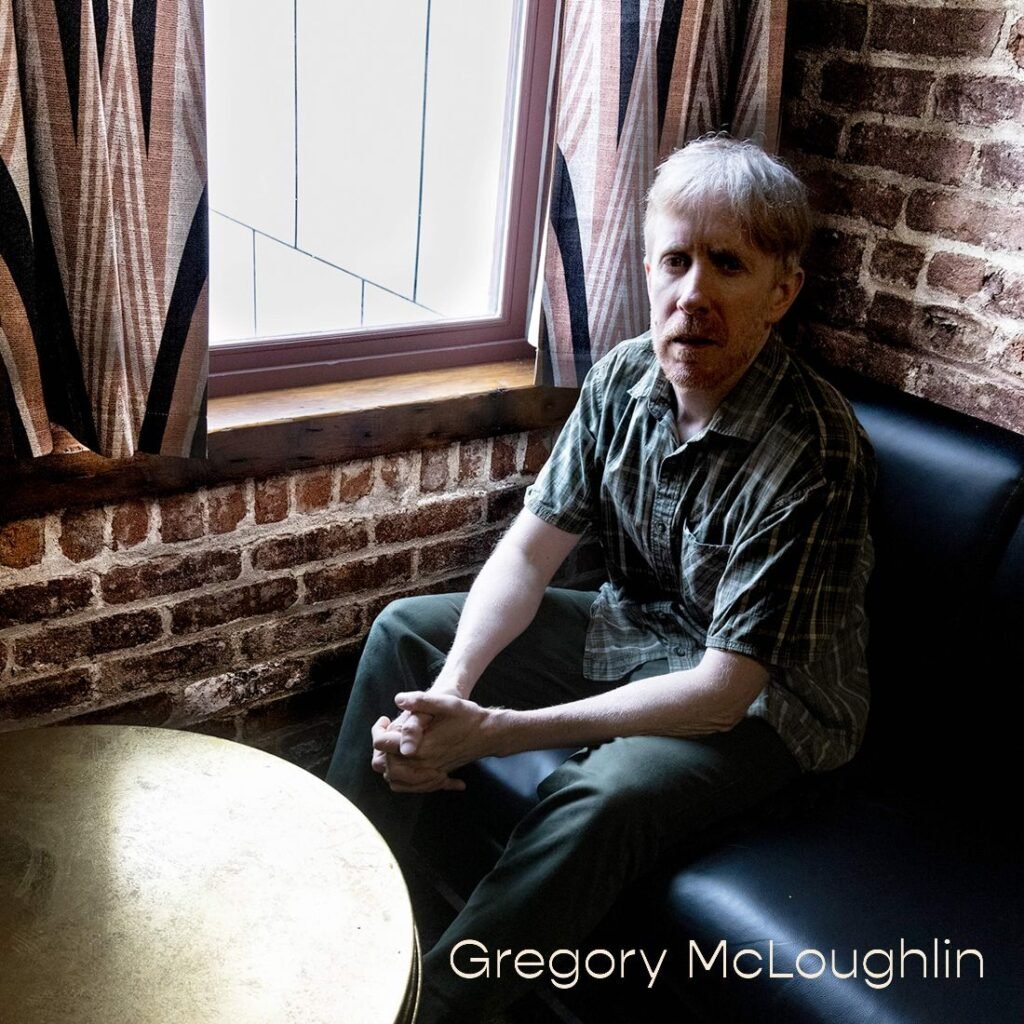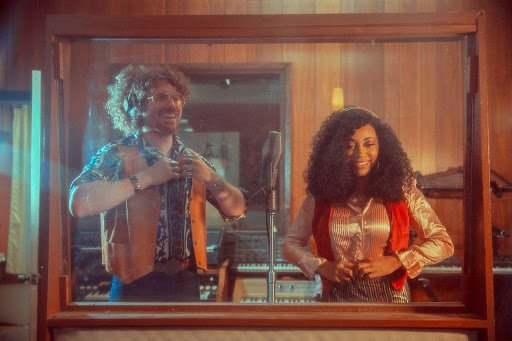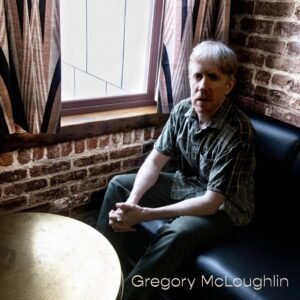In a new interview with Adam Roach of the Land Of Music podcast, vocalist Leigh Kakaty of Michigan rockers POP EVIL spoke about the band’s eighth album, “What Remains”, which was released in March via MNRK. Regarding how POP EVIL‘s approach to writing and recording was different this time around, he said (as transcribed by BLABBERMOUTH.NET): “All the albums, you try to outdo ’em. You try to get a little better, [and you work with] different producers, different engineers. It’s just part of the element. It’s just part of the landscape that is making a new record. And you kind of learn from some of the mistakes that you’ve made along the way, and you’re, like, ‘Okay, let’s not do that again. We tried that. Nope.’ Or, ‘We haven’t tried this. Let’s do that again.’
“The way this album was unique was after the first five songs I remember we had, my manager, he reached out and he goes, ‘Do you know what you’re writing about?'” he recalled. “And I’m, like, ‘No, I’ve just got the blinders on. I’m just full speed ahead. I’m not really thinking about it. Just writing songs.’ And he goes, ‘Well, I want you to just read the lyrics to a few of these songs, and call me back. Just don’t listen to the music. Just read the lyrics.’ So I did. And he was, like, ‘Man, you realize these songs are about you.’ And I’m, like, ‘Wow.’ I didn’t even realize that I had that kind of weight that I’d been carrying all these years. And he goes, ‘I want you to keep pushing.’ And then I remember, I go, ‘Let me see what the band says.’ And then the band was kind of, they were all about it, very supportive. And I think with the band’s blessing, it just made it… This lineup especially, with POP EVIL, the way we we’ve been supporting each other has really made it a healthy environment for me to really push and go down those rabbit holes to heal where in the past maybe I’d be, like, ‘Nah, I don’t wanna write about me.’ Sometimes it’s easier to write about others anyways, but it just was so organic, the way it was flowing, and it just felt like every song, boom, weight releasing, everything was just coming off my shoulders, and it just felt so right, man. There was a different kind of happiness that I was feeling towards the end of it. [I was] certainly feeling the pressure as well. I mean, you want an album to be great, but it was just a different kind of feeling. And I knew that if I was going through this, there’s gotta be someone else who’s going through it. And just kind of knowing that it might help someone else or I wasn’t alone and feeling these feelings that I was feeling, that someone else has gotta be with me out there, it just motivated me to just keep pushing and just keep going down that rabbit hole and just excited about when we finally were able to get the music out. And now, here we are, and sure enough, people have been loving the album, so [I’m] super grateful and inspired to just get back in and get writing and trying to outdo this one on the next one.”
Asked if writing about his personal experiences was “a healing process” for him in some way, Leigh said: “Yeah. It is. It’s exactly like it. ‘Cause for fans, when you’re feeling off or you need some kind of inspiration, you’re going and listening to your favorite bands or you’re listening to certain songs and you can feel better, like you needed that. Sometimes you hear that song and you’re, like, ‘Oh, I just needed that.’ I’ve gotta hit repeat, repeat, repeat, repeat. And for musicians, it’s similar, but sometimes it can happen with your own music, ’cause you know what you’re going through. So you’re writing it, in this particular case, all for… I mean, there still can be some metaphors in there, but a lot of reference to the things you’ve been going through and dealing with. So as you’re listening, that becomes your favorite song for maybe a few months. You’re, like, ‘Oh my gosh. I’ve gotta hear it.’ ‘What Remains’ was, like, ‘Man, I had no idea I needed to hear that song.’ I must have played it out a million-some-odd times before it was ever released, so by the time it comes out, you’re ready for it to be someone else’s song. But for that window before an album’s released, that music’s mine, or it’s for the band to use for the healing and to be motivated by. So for that first year, before we released it, a lot of those songs were just what I needed to really release and find out the mental health issues that I’ve really been struggling with and put myself in a position to kind of be better on the stage by learning to heal off it.”
For two decades, Kataky has needed to mine the deepest of reserves in order to drag POP EVIL up from the blue-collar grassroots of his local Michigan scene to stand proud at the top of the modern rock game. Soaring successes, bitter defeats… Kakaty has survived it all. “What Remains” is the culmination and story of this journey with POP EVIL, laid bare like never before. Continuing in the vein of 2023’s acclaimed “Skeletons”, the new opus is both sonically and thematically POP EVIL‘s heaviest ever offering; a thundering collection of arena-ready modern rock and metal hits in which Kakaty opens heart, mind, and soul.
POP EVIL were born in North Muskegon, Michigan in 2001, Kakaty drawing on the lessons of a youth first shaped not by music, but by high school basketball — leadership, team work, the drive to improve in the lonely hours put in at the gym at 5 a.m., the will to win suppressing any fear — in order to fight tooth and nail for their break-out moment.
“I was hustling and learning every day to make my dreams come true,” Kakaty recalled of his time playing local bars and slinging early EPs out of the back of his truck. “Studying never interested me. Neither did getting a regular job. A knee injury wrecked my shot at playing sports. Music was all I wanted to do from that moment, and I didn’t give myself a backup plan. POP EVIL gave me a purpose, and a reason to get up every day. It became a crusade.”
“Lipstick On The Mirror”, POP EVIL‘s 2008 debut, and its follow-up, “War Of Angels”, brought acclaim and global attention; 2013’s “Onyx” delivered the first of the band’s nine No. 1 singles and six RIAA-certified gold and platinum plaques, but also a period of darkness brought on by the grief of Kakaty losing his father. “I was completely lost … I had just missed the last five years with my dad, chasing this dream when I could have been with him. I didn’t know if I wanted or could do POP EVIL anymore,” he said. The band’s 2017 self-titled album, opened by the smash-hit “Waking Lions” was written “pretty much to save my life” – but in turn “reminded me of the fire I have inside, and that God put me here to make music that could help people.”
It’s a mission statement enshrined in POP EVIL to this day — and which provided the spark for the genesis of “What Remains”.
“You’re always chasing that one song that can connect with that one person,” Kakaty said. “And that process has to start with yourself. There’s a lot of personal healing on this record, a lot of things I wanted to get out for my own mental well-being. I’m finally at a place where I can confront my demons.”
Sonically, the album is a riotous explosion of life-affirming noise; a vortex of scything riffs and gut-punch drum beats that regularly give way to POP EVIL‘s hallmark anthemic choruses.
“We set out to push boundaries,” Kakaty said. “Metal has always been a part of our DNA, but we’ve never made it such a focal point before. A lot of writing on this record has been about listening to what my soul is saying and letting the songs find their own path, rather than chasing a sound that might fit in on the radio. I think you can really hear the mood and emotion of the album’s themes in the music.”











